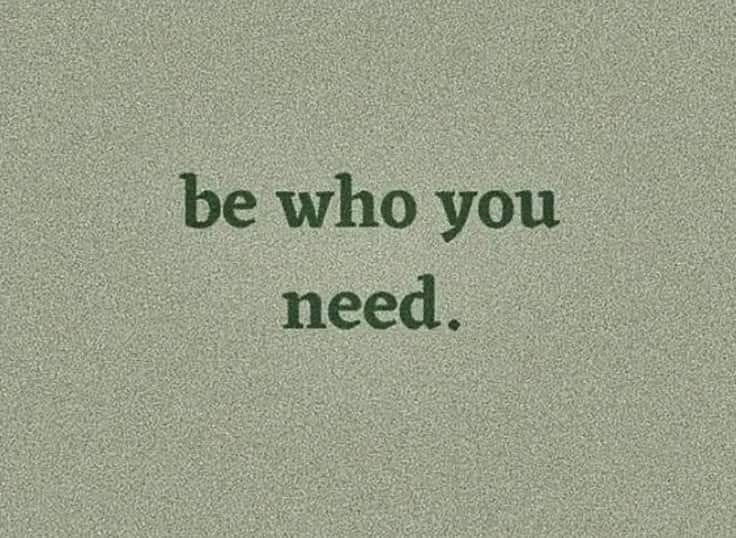On goals pt.I: why you help others instead of yourself
we're saints to everyone and jerks to ourselves
I think I’m losing myself again.
In relationships, I tend to go all in, ensuring my partner is 100% satisfied with the “service” I provide, unwilling to risk the “satisfaction guarantee or your money back” policy. I meticulously polish every ridge until I’m completely worn out, dripping self-neglect and sometimes (well, often) tears. I am content to scavenge for the crumbs if there are any left.
If, in a fleeting moment of rare lucidity, I decide to face the ugly truth of my
self-neglect and the obvious demonstration of low self-esteem, I muster all my courage … and complain to my partner about why I’m not receiving the care I so generously serve.
Pure madness ✨.
But this time, something’s different. For one, I’ve done the self-esteem work, and learned to spot the red flags in myself. And two, I happen to be blessed with an amazing partner who calls me out whenever I slip into my “Mother Teresa” mode.
So, it’s not that I’m losing myself by projecting my insecurities onto him — I simply don’t know how to commit to myself.
It’s not like I lack ambition. Matter of fact, I’ve always been full of it. But something always pulls me back into the mundane details of life— not always my own —and I end up pushing my own dreams to the back of my mind, telling myself I’ll get to them later. Later, when I’m less busy, when the time is right, when I’m not so tired…
But later rarely comes, and they just sit there, gathering dust, waiting for a version of me that may or may not arrive.
So, I can’t help but wonder: why is it easier to hype up other people’s dreams than our own? Why does committing to our goals seem so elusive?
Everyone procrastinates, but “There are as many as 20% of normal adults men and women from around the world who make procrastination their maladaptive lifestyle”, meaning that they procrastinate chronically in ways that not only disrupt their daily lives but also drag along guilt and shame.

First and foremost: Where does procrastination come from?
The limbic system VS the prefrontal cortex
The limbic system and the prefrontal cortex operate in a choreographed dance. The former is your emotional drama queen, chasing instant gratification and short-term rewards. The latter is your rational gal, stepping in to contain the emotional tantrums by focusing on long-term goals, or the “bigger picture”. But when tasks trigger negative emotions, the limbic system can hijack the prefrontal cortex, letting emotions take the lead.
The brain’s dopamine system
Procrastination is heavily influenced by dopamine, the brain’s “that-was-so-good-let’s-do-it-again” neurotransmitter. Dull or stressful tasks don’t deliver much dopamine, which makes us want to avoid them, while enjoyable distractions — like scrolling through that random Instagram couple messy split — provide an instant dopamine hit. This reinforces the behavior and makes us more likely to seek out similar activities. Similarly, when we help others, our brain’s reward system lights up, giving us a feel-good boost. This positive reinforcement encourages us to repeat that behavior.
Present bias and time inconsistency
Present bias is the human tendency to favor immediate rewards. We often downplay future rewards even if they’re more valuable, because they seem distant and intangible. You might consistently take on additional responsibilities for your partner because “Oh babe, let me take this load off your shoulders so you can spread your wings
and fly.” But behind this self-devotion act, lies a whining voice patiently awaiting the immediate reward of approval, affection, or validation from your beloved.
Now the trick is that, over time, self-effacement breeds resentment. Eventually, you start sulking over every missed workout, every sidelined project, every extra chore you took for the sake of love.
But, hey! they’re not psychic!!! We end up feeling walked all over by people who never even knew they were crossing a line. Why? Because they failed to interpret all the things you kept bottled up. “If you really loved me, you’d just know”, isn’t it? …
Time inconsistency refers to the struggle between your present self (desperate to binge watch Harry Potter yet again) and your future self (stuck with the consequences). In essence, we discount the value of a future benefit to obtain a less rewarding but more immediate benefit. In this case, the immediate satisfaction comes from being “needed” in the present. Unsurprisingly, this pattern often leads to feelings of guilt, frustration, or self-doubt in the future when you realize you’ve let your own ambitions fall behind.
✵ ✶ ✵
What fuels procrastination: Know your triggers

Fear of failure
When a task feels challenging or high-stakes, the fear of not measuring up creates a crippling anxiety which leads to avoidance. But while we’re caught up in our personal baggage, we’re emotionally detached from other people’s insecurities and struggles which makes it easier to focus on their goals objectively.
Perfectionism
Setting impossibly high standards and whipping yourself when you can’t achieve them? Been there, done that. It’s always “I need more time, more resources, more knowledge…” Anything to delay the inevitable disappointment of realizing you can never meet the impossible expectations you've set for yourself. But while you’re ready to beat yourself up at the slightest flaw, you’re (of course) more indulgent with your loved one.
Task aversion and emotional regulation
We often procrastinate to avoid discomfort, and that burning feeling you get when you need to take out the trash, file taxes, or start that long-overdue essay is called task aversion. At its core, procrastination is an emotional regulation problem driven by the “overriding desire to feel good now, or rather to not feel bad now.” Instead of addressing the root of the negative emotions associated with the task —anxiety, dread, etc.—, you avoid it altogether, seeking short-term emotional relief, only to wind up with even more stress down the line :)))) .
Helping others, however, feels less emotionally taxing. With your own goals, you might overanalyze and second-guess every step, whereas you tend to offer simple, straightforward advice to others without getting caught up in unnecessary details.
Personal background and experience
Some of us have been conditioned from childhood to endorse the caretaker role
and learned to put others’ needs before our own. When we observe another person’s pain or joy, our brain mirrors their emotion and reacts as if we’re experiencing those things ourselves —this is called a “vicarious state.” This ability to mentalize the experiences of others so vividly can prompt prosocial behaviors.
Self-worth, self-esteem, and external validation
Low self-worth and shaky self-esteem can trick you into thinking that others are more deserving by believing that their needs are more important. When your sense of value hinges on external validation — or worse, when you appoint yourself as your partner’s sole caretaker — prioritizing their happiness becomes second nature. Their “you’re amazing honey” can feel more rewarding than personal achievement.
Lack of motivation or purpose
It’s hard to pursue a goal or complete a task if you don’t see value or meaning behind it. When we lack a strong connection to our goals, it becomes very easy to focus on others because their goals offer more immediate direction or purpose.
✵ ✶ ✵
I procrastinated for months on this article. I went through it all, spiraled into the loop of doom-and-gloom, marinated in imposter syndrome, doubted myself more than I should’ve and asked questions I never thought I needed answers to… But along the way, I found ways to hold myself accountable and actually get things done. So, if I almost miraculously managed to beat procrastination and finish this piece, there’s hope for us all. Will you stick with me for tips in the next one? 💌 —





I'm glad you got there and stopped procrastinating. There are some great tips in here on why people put in so much and feel exhausted and disappointed in the results, and why we procrastinate.
I'm working on a Substack called Desperately Seeking Wisdom - it's for people looking for help navigating what can be a complex, sometimes frightening, often indifferent, but ultimately wonderful world. I hope you will check it out.